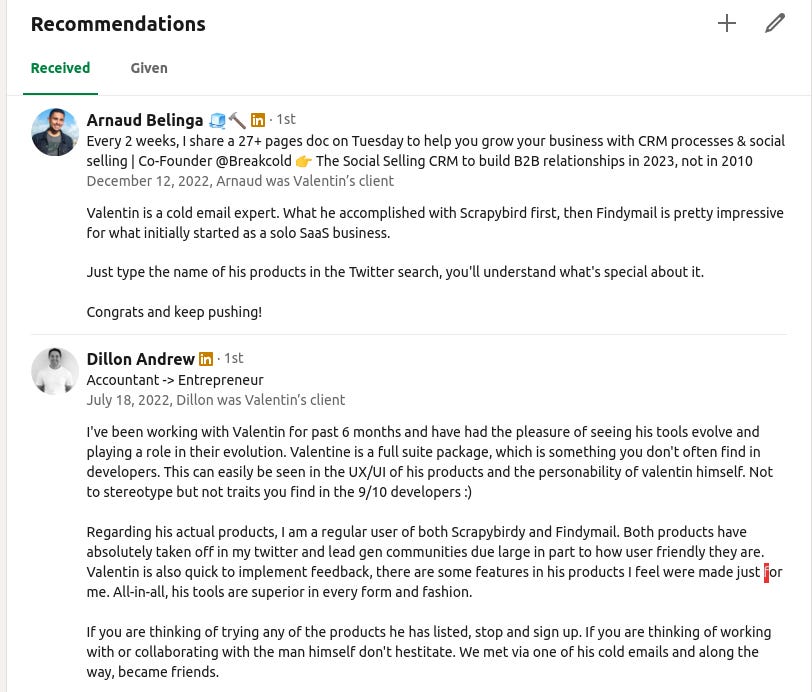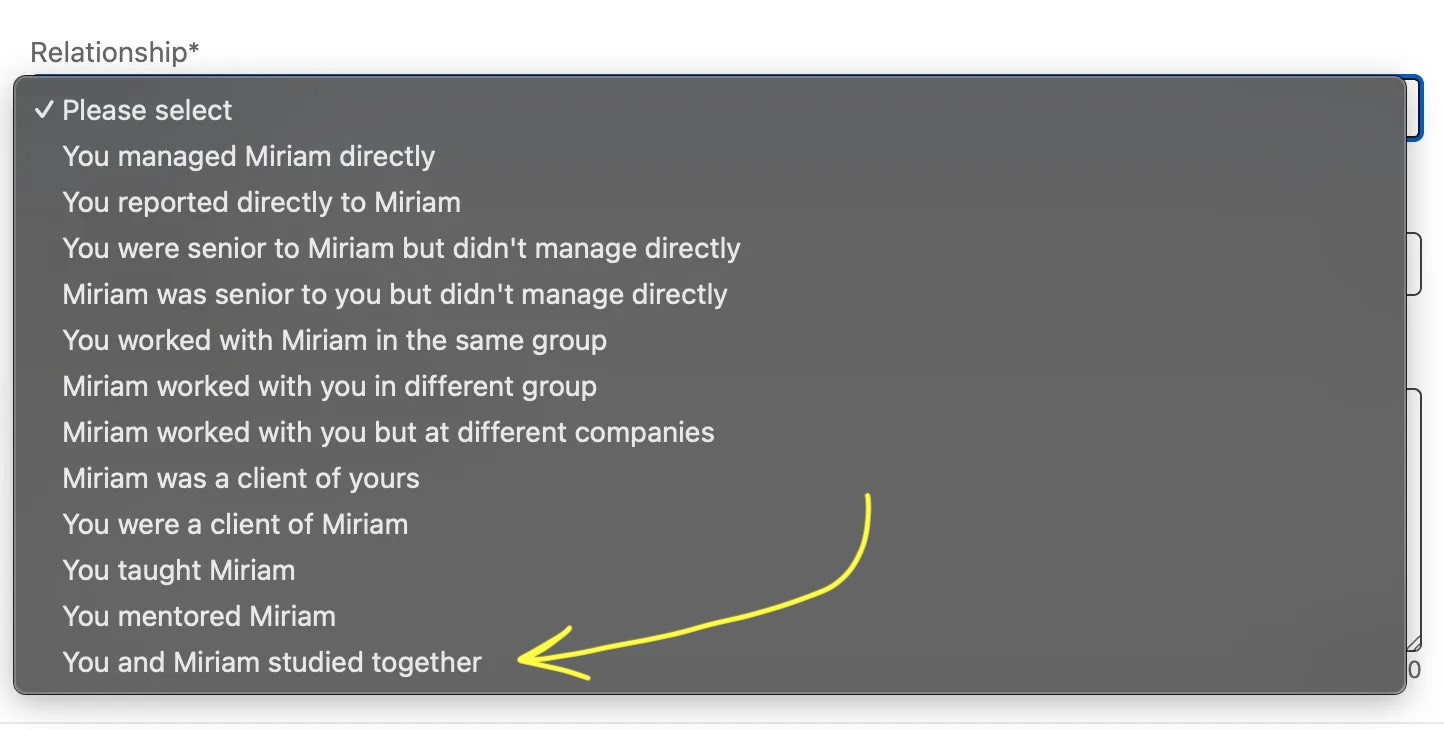To recommend or not to recommend?
That is the question 🤔
Today we focus on one of the features that is probably less noticed on LinkedIn: the recommendations.
A recommendation is a comment that a person can leave for a contact describing:
the relationship they had
the position they were covering
a free-text section about how it was like collaborating with that person
Once a recommendation is left, the other person can review it and decide whether to publish it or not.
In my opinion, people are generally embarrassed and tend to avoid this feature because it requires them to be exposed. 🙈
Also, from a cultural perspective, recommendations could be perceived negatively due to certain dynamics in toxic environments where people climb the ladder only thanks to “good friendships.”
👉🏻 I want you to completely ignore these intrusive thoughts and focus on your goal: building an effective profile that attracts people.
Like endorsements, recommendations allow you to create a more credible profile, thanks to a strong network that you can build year after year.
In LinkedIn world, you can either give or request a recommendation. Let’s see how you can leverage them.
As a Student 👨🏻🎓
One thing I would do if I could go back is start building my network right from university. 🎓
As you can see, you can also indicate that you studied together.
Imagine how many students you meet during your academic career: the more relationships you build, the more likely it is that one of your peers will have a remarkable career, and having your name on their profile could be crucial for receiving new interview proposals.
As a Professional 💼
Of course, you have plenty of relationships in the professional world.
Here, I recommend opting for asking recommendations when you leave a company.
Leaving is a good time to request recommendations, as it’s the moment when you say goodbye to people, so they might feel more inclined to leave you a comment rather than on a daily basis, when they have other things to think about. In general, it will feel more natural for them to return the favor at that time.
On the other hand, there’s always a good moment to leave recommendations: don’t be too proud to take the first step. Take the initiative and leave a good comment for people you believe in.
A good north star for your career, in general, is to build strong relationships.
If you can do so, people will remember you.
And if they remember you, they will not hesitate to spend a couple of positive words for you.
On the other hand, try to be fair and ready to spend some time giving good feedback to those who have demonstrated talent or, in general, have been helpful in your career.
At some point, you might feel the pressure of receiving recommendations: don’t be stressed if nobody left you one. It still leaves a positive impression to showcase your intent to share feedback with others.
With this in mind, let’s now see when you should recommend 👍🏻, and when you shouldn’t 👎🏻.
When to recommend 👍🏻
when the person made an impression on you while working
when somebody helped you a lot in your job
when the person was your mentor or manager and positively impacted your career
When to not recommend 👎🏻
when somebody you don’t believe in requests a recommendation
when somebody you don’t believe in recommends you
when your friend asks you, but they don’t belong to your sector
when you don’t have a good balance between given and received recommendations (in this case, postpone it)
3 extra tips ✍🏻
1️⃣ The keyword is balance: while it’s okay not to have received recommendations, you probably shouldn’t leave 100 recommendations if you haven’t received any. The reason is that it reduces their credibility, as people might think you are leaving them just to receive them in return.
2️⃣ Related to the point above, be picky about who you choose: you will soon realize that writing various and different recommendations is not easy. Because of that, be spontaneous when you write and talk about real experiences.
3️⃣ Absolutely never lie.




